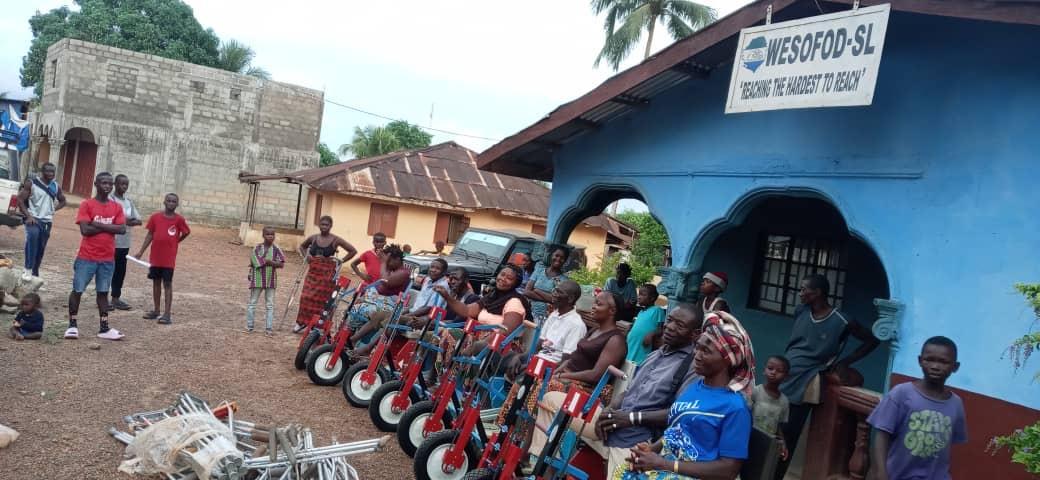Africa-Press – Sierra-Leone. Residents with disabilities in Pujehun are calling on authorities to address the widespread inaccessibility of public buildings, highlighting the daily struggles they face due to non-compliant infrastructure.
In an interview, Madam Amie Kemokai, the District Coordinator of the Sierra Leone Union on Disability Issues (SLuDI), described the situation as disheartening. She highlighted that most public buildings in the district, including offices of the Ministry of Social Welfare, police stations, health centers, schools, markets, religious institutions, youth centers, and even residential buildings, are not accessible to persons living with disabilities.
“We are not happy with the current state of accessibility in Pujehun,” Madam Kemokai said. “It is very difficult for us to attend meetings, trainings, or workshops because the venues are not disability-friendly.”
She expressed appreciation to The Welfare Society for the Disabled (WESOFOD-SL) for their presence in the district, noting that the organization has brought significant positive change to the lives of persons with disabilities.
“We thank WESOFOD-SL for their tireless support. But we need more. We call on the government and stakeholders to pay attention to our concerns and create an inclusive environment for all. Disability is not a choice—it can happen to anyone at any time,” she emphasized.
Mohamed Sillah, District Coordinator for WESOFOD-SL, reaffirmed the organization’s commitment to advocating for and supporting persons living with disabilities across Sierra Leone.
“WESOFOD-SL has adapted several schools in the district by installing ramps and making the environment more accessible,” Sillah said. “We have also provided learning materials and assistive devices to children with disabilities, and supported their parents through skills training and business grants.”
Mr. Sillah referenced the Persons with Disability Act, 2011 (Act No. 3 of 2011), which mandates that all proprietors of public buildings ensure accessibility for persons with disabilities.
“Section 24 (2) of the Act requires public building owners to adapt their facilities in line with standards set by the National Commission for Persons with Disabilities (NCPD),” he explained. “Section 24 (3) provided a five-year window from the Act’s commencement for these changes to be made. Section 26 (1) empowers the NCPD to issue adjustment orders to enforce compliance.”
Despite the existence of the law, implementation remains a significant challenge in districts like Pujehun.
Adding a personal voice to the ongoing struggle, Isata Mansaray, a permanent wheelchair user, shared her heartbreaking story. She revealed that she was forced to drop out of school due to the inaccessibility of school buildings.
“My parents tried their best to send me to school, but the classrooms, toilets, and other facilities were not accessible to someone like me in a wheelchair,” she said. “I thought of pursuing skills training instead, but none of the centers were disability-friendly either.”
She joined Madam Kemokai in urging the government and stakeholders to create an inclusive environment and provide assistive devices and financial support to persons living with disabilities.
The call from the disabled community in Pujehun highlights a broader national challenge—while legal frameworks for disability inclusion exist, their implementation, especially in rural areas, remains far behind. Advocates say it is time for those in power to act and ensure that no citizen is left behind.
For More News And Analysis About Sierra-Leone Follow Africa-Press






